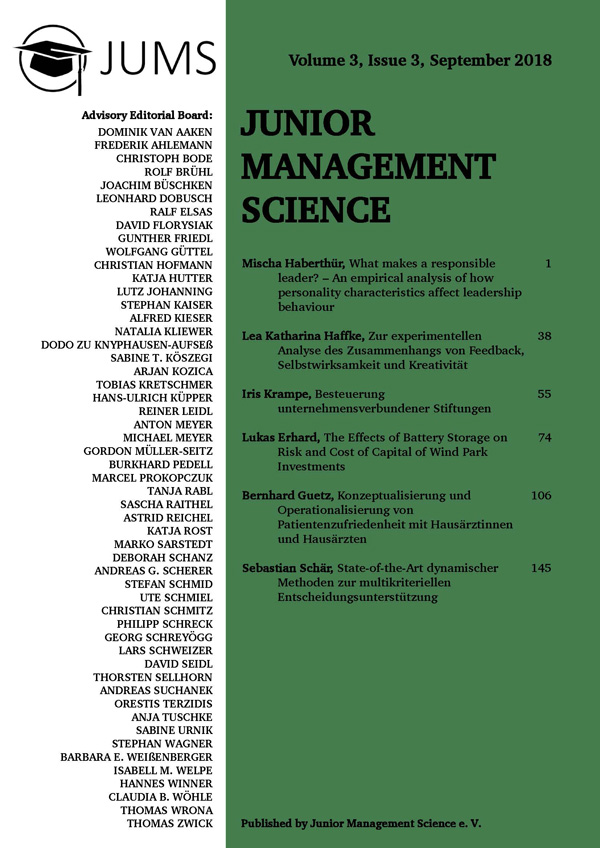Abstract
This master’s thesis contributes to the ongoing discussion on responsible leadership and its antecedents by empirically analysing the relationship between various traits and responsible leadership effectiveness. In a quantitative experimental research study, the participants (62 men and 32 women) first filled out an online survey assessing their gender, age, and major field of study as well as their score in the personality dimensions honesty-humility, openness to experience, empathic concern, perspective taking, and holism. Afterwards, their second-to-fourth digit ratio was measured, and men had the option of providing a saliva sample which was used to determine their testosterone level. Finally, the participants’ performance in the leadership roles professional, facilitator, citizen, idea-provider, and total was assessed with a think-aloud protocol. By performing a multiple linear regression analysis, I found that empathic concern positively influences the roles facilitator and total, holism the role citizen, and perspective taking the role idea-provider. I also found that men and psychology students are less likely to perform well in the role idea-provider and that openness to experience negatively affects facilitator. This master’s thesis contributes to the ongoing discussion on responsible leadership and its antecedents by empirically analysing the relationship between various traits and responsible leadership effectiveness. In a quantitative experimental research study, the participants (62 men and 32 women) first filled out an online survey assessing their gender, age, and major field of study as well as their score in the personality dimensions honesty-humility, openness to experience, empathic concern, perspective taking, and holism. Afterwards, their second-to-fourth digit ratio was measured, and men had the option of providing a saliva sample which was used to determine their testosterone level. Finally, the participants’ performance in the leadership roles professional, facilitator, citizen, idea-provider, and total was assessed with a think-aloud protocol. By performing a multiple linear regression analysis, I found that empathic concern positively influences the roles facilitator and total, holism the role citizen, and perspective taking the role idea-provider. I also found that men and psychology students are less likely to perform well in the role idea-provider and that openness to experience negatively affects facilitator.
Keywords: Responsible leadership, Ethical leadership, Corporate social responsibility, Stakeholder approach, Personalitycharacteristics

